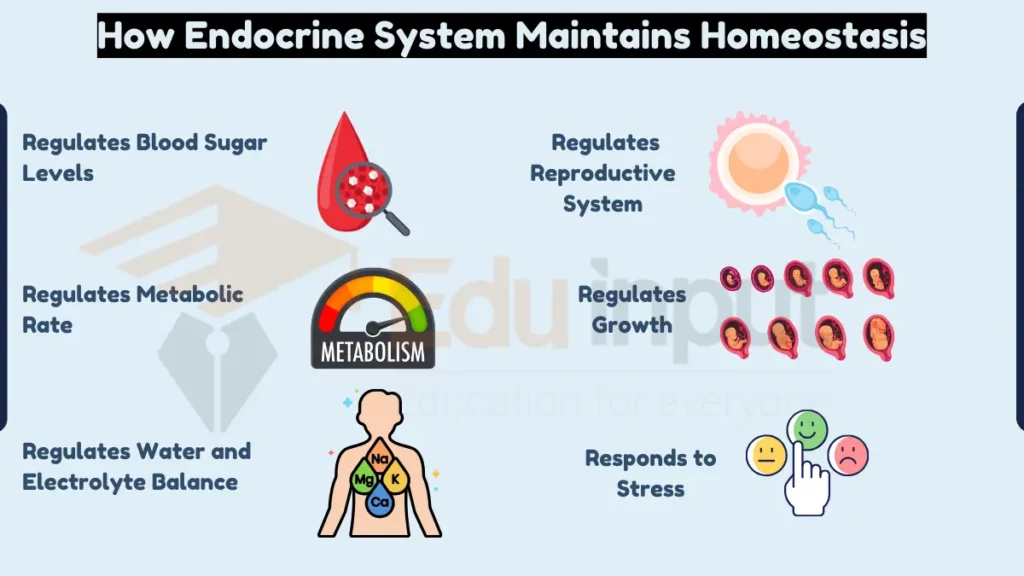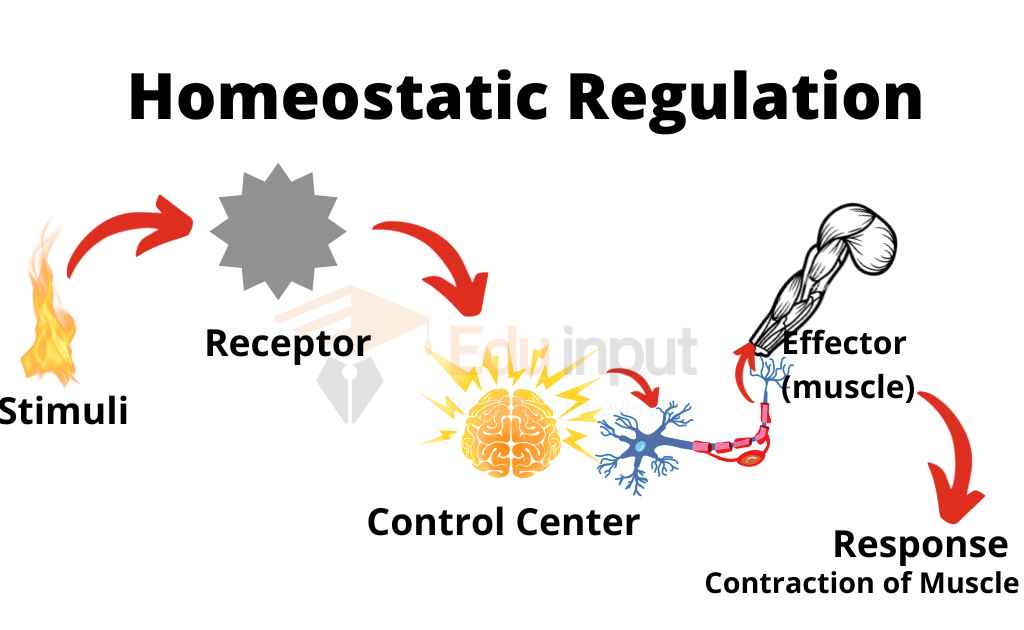How Endocrine System Maintains Homeostasis
The endocrine system helps to maintain homeostasis in body by releasing hormones that regulate a variety of processes, including blood sugar levels, metabolic rate, electrolyte and water balance, reproductive system function, growth and development, and response to stress.

6 Ways How Endocrine System Maintains Homeostasis
Here is how Endocrine System Maintains Homeostasis in our body:
1. Regulates Blood Sugar Levels
The endocrine system helps to regulate blood sugar levels by releasing hormones such as insulin and glucagon. Insulin lowers blood sugar by helping cells to take in and store glucose. Glucagon raises blood sugar by releasing glucose from the liver.
By working together, these hormones keep blood sugar levels within a normal range.
If you eat a meal that is high in carbohydrates, your blood sugar level will rise. The pancreas will then release insulin to help your cells absorb the glucose from the blood. This will help to lower your blood sugar level back to a normal range.
2. Regulates Metabolic Rate
The endocrine system also helps to regulate metabolic rate, which is the rate at which the body uses energy. This is done through the release of thyroid hormones.
Thyroid hormones increase metabolism by increasing respiration, heart rate, and the breakdown of nutrients to generate heat. This helps to maintain a stable internal body temperature.
If you are cold, your thyroid gland will release more thyroid hormones. Thyroid hormones increase your metabolic rate, which helps to generate more heat and keep you warm.
3. Regulates Water and Electrolyte Balance
The endocrine system also helps to regulate water and electrolyte balance in the body. This is done through the release of hormones such as antidiuretic hormone (ADH) and aldosterone.
ADH helps the kidneys to reabsorb water from the urine, preventing dehydration. Aldosterone helps the kidneys to retain sodium and excrete potassium. This helps to control blood volume, pressure, and pH.
If you are sweating a lot, you will lose water and electrolytes. The pituitary gland will then release antidiuretic hormone (ADH) to help your kidneys retain water. This will help to prevent dehydration.
If you drink a lot of water, your kidneys will excrete the excess water. The pituitary gland will then release less ADH.
4. Regulates Reproductive System
The endocrine system is involved in regulating the reproductive system. This is done through the release of hormones such as testosterone and estrogen. These hormones control sperm and egg production, ovulation, and menstrual cycle. This is important for fertility and reproduction.
The pituitary gland releases hormones that stimulate the ovaries to produce eggs and the testes to produce sperm. These hormones also control ovulation and menstrual cycle.
5. Regulates Growth
The endocrine system also helps to regulate growth. This is done through the release of hormones such as growth hormone. Growth hormone stimulates tissue and bone growth. The thyroid also affects growth by regulating metabolic processes.
The pituitary gland releases growth hormone, which stimulates tissue and bone growth.
6. Responds to Stress
When the body is under stress, the endocrine system releases hormones such as cortisol. Cortisol helps to mobilize energy reserves and maintain blood sugar levels. It also helps to suppress the immune system and reduce inflammation. This helps to prepare the body to deal with the stressor.
When you are stressed, your adrenal glands release cortisol. Cortisol helps your body to cope with stress by increasing your heart rate and blood pressure.
Also Read:





Leave a Reply